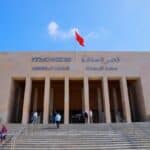Kinshasa/Brussels, 26 April 2013 – Avocats Sans Frontières (ASF) is mandated to represent legally at least 58 villagers of Yalisika, who were victims of human rights violations by members of the Congolese police and military forces in 2011. Despite numerous legislative texts on forest management, private logging companies in DR Congo rarely respect the law and local communities are not sufficiently aware of their rights. As a result, these communities continue to be marginalised and victims of abuse, particularly in rural areas.
It was three o’clock in the morning on 2 May 2011, when some 60 police and military personnel entered the small village of Bosanga, located in Yalisika, in the Equator Province, North DR Congo. “The men in uniform raped several women and young girls. Numerous beatings ensued. An elderly man died. Police and military also went from house to house seizing and destroying our property”, witnessed a community member. At least, 15 persons –including two minors – were arrested and ill-treated.
This operation was retaliation to at least three incidents which had taken place earlier in that year, when villagers seized some goods of the logging company SIFORCO to force the company to engage a dialogue. SIFORCO started logging in the area in 1993 and signed a “social responsibility agreement” with traditional chiefs in 2005. “Such agreements are a legal obligation and imply benefits for local people when industrial loggers arrive in their communities”, explains Bahia Zrikem, ASF Country representative in Kinshasa. “But five years later, the community had still not received either the school or health facility promised by SIFORCO. They were tired of the company’s stalling on the delivery of benefits. This explains the incidents”.
The case of human rights violations by the police and military in Yalisika was taken on by ASF in March 2012. “Our role is to organise the victims’ legal representation before the Congolese jurisdictions, to defend their interests and also ensure their protection”, adds Bahia Zrikem.
The Military Prosecutor’s office started investigations, which are still on-going. 60 members of the police and military forces are allegedly involved in the crimes and there are elements showing that some SIFORCO employees would have participated in the planning and the preparation of the attack. A trial could be organized two months after the closing of the investigation. “This will be an important moment. We believe that the human rights abuses committed constitute crimes against humanity and need to make sure that all public and private perpetrators involved will be held accountable”, concludes the ASF Country representative.
Over the years, ASF has built up a specific expertise in the field of international criminal justice in DR Congo, notably through its pool of local lawyers. This case is part of a general effort to fight impunity for particularly vulnerable communities, living in remote areas such as the Equator province, for which access to justice is virtually impossible.
Note: On April 25 2013, a complaint was filed in Germany against the multinational company Danzer, SIFORCO’s parent company at the time of the crimes. This legal action complements ASF intervention in support to the victims before Congolese Courts.
Featured image: Logging companies in DR Congo often do not meet their obligations in terms of compensation for local communities. In Lisala, the material provided by a logging company to build a school is of bad quality. © Photo 2011 – D. Gessara Koyambo/ASF



